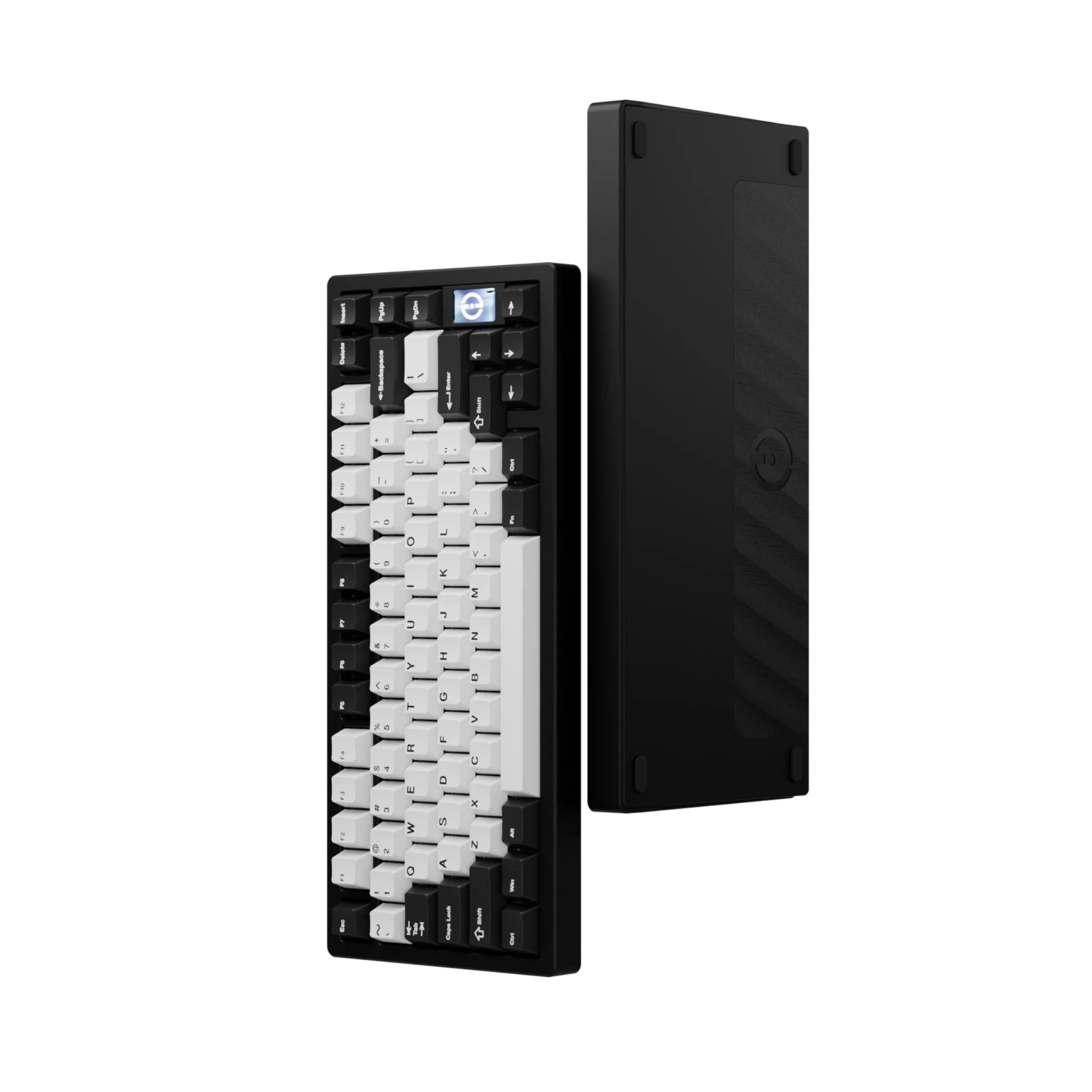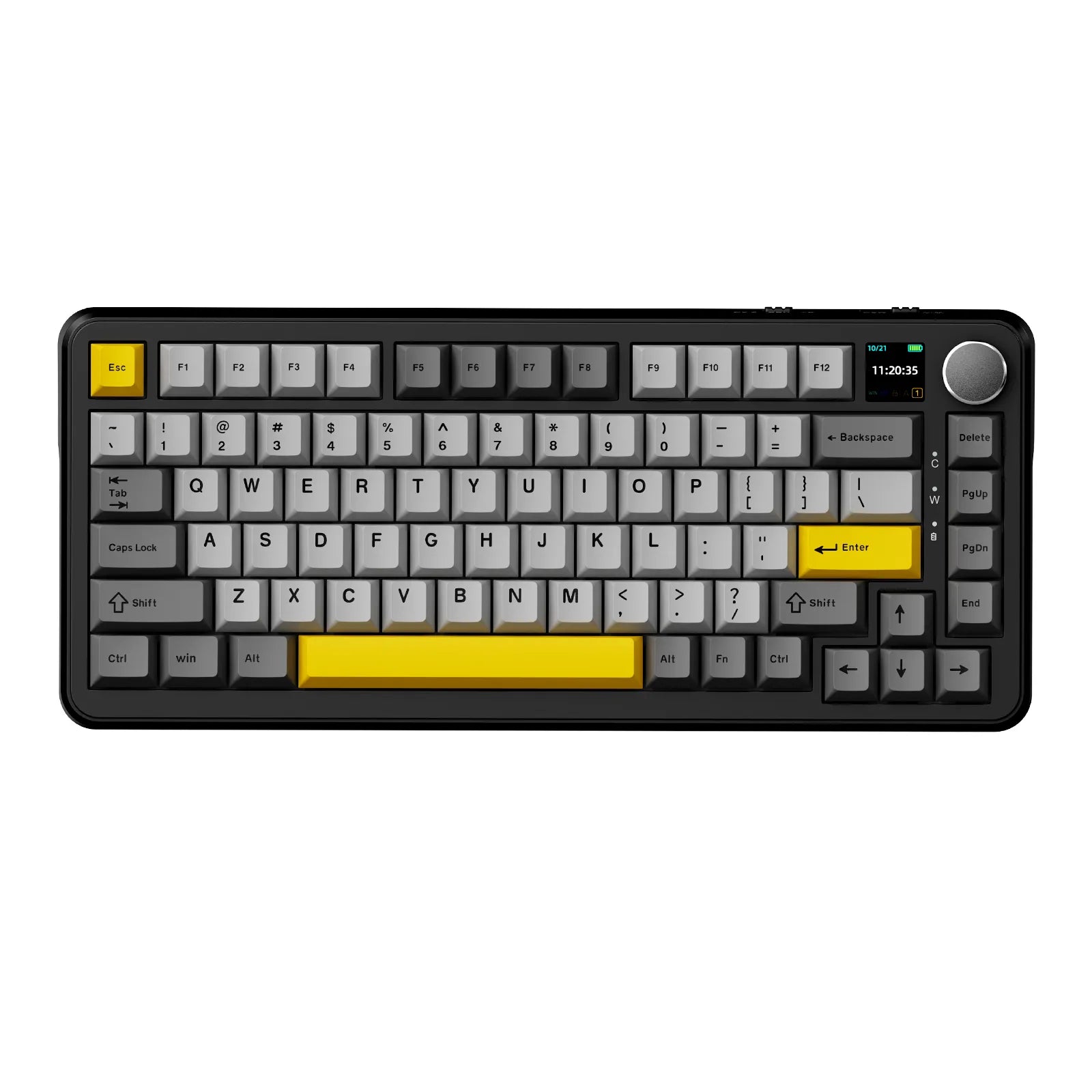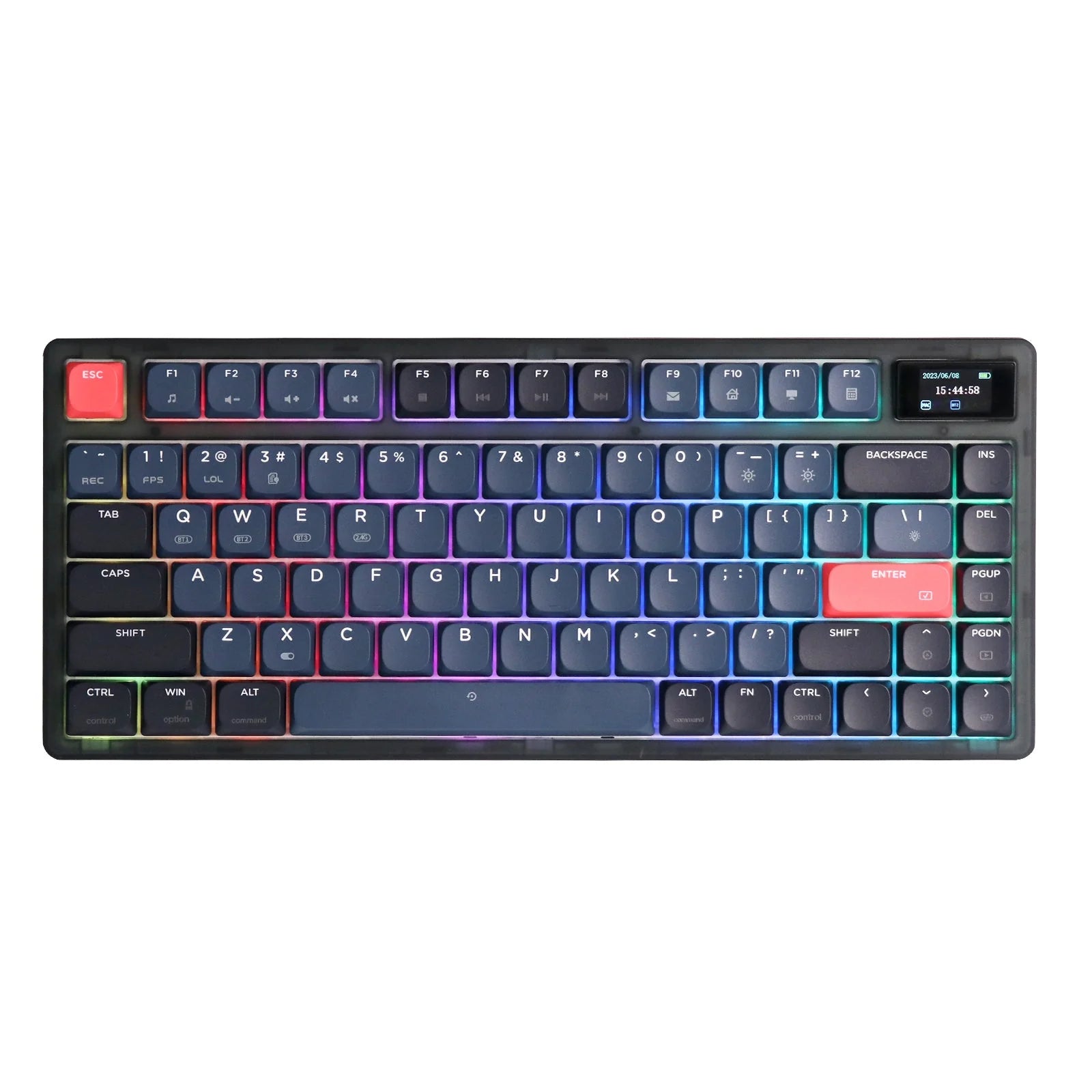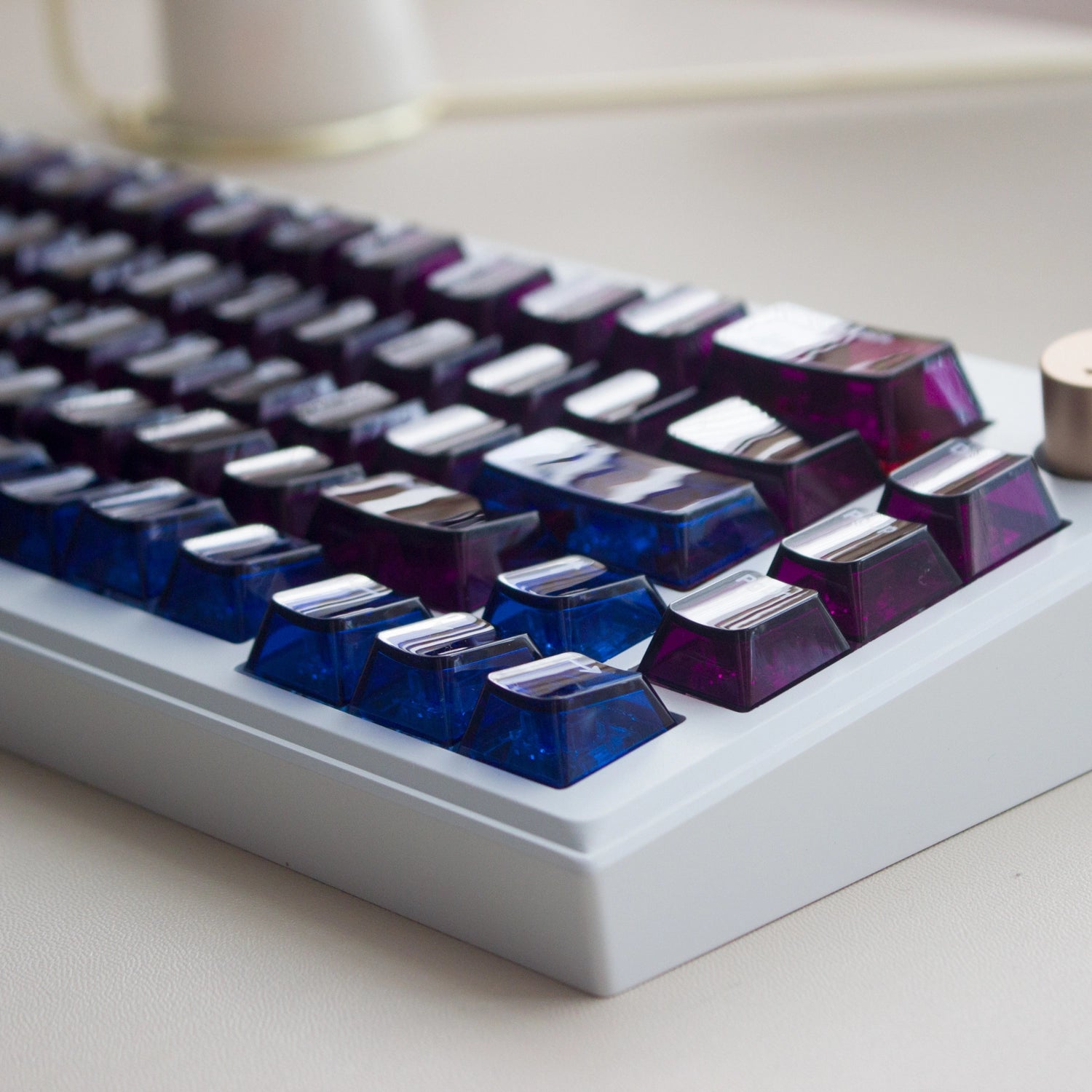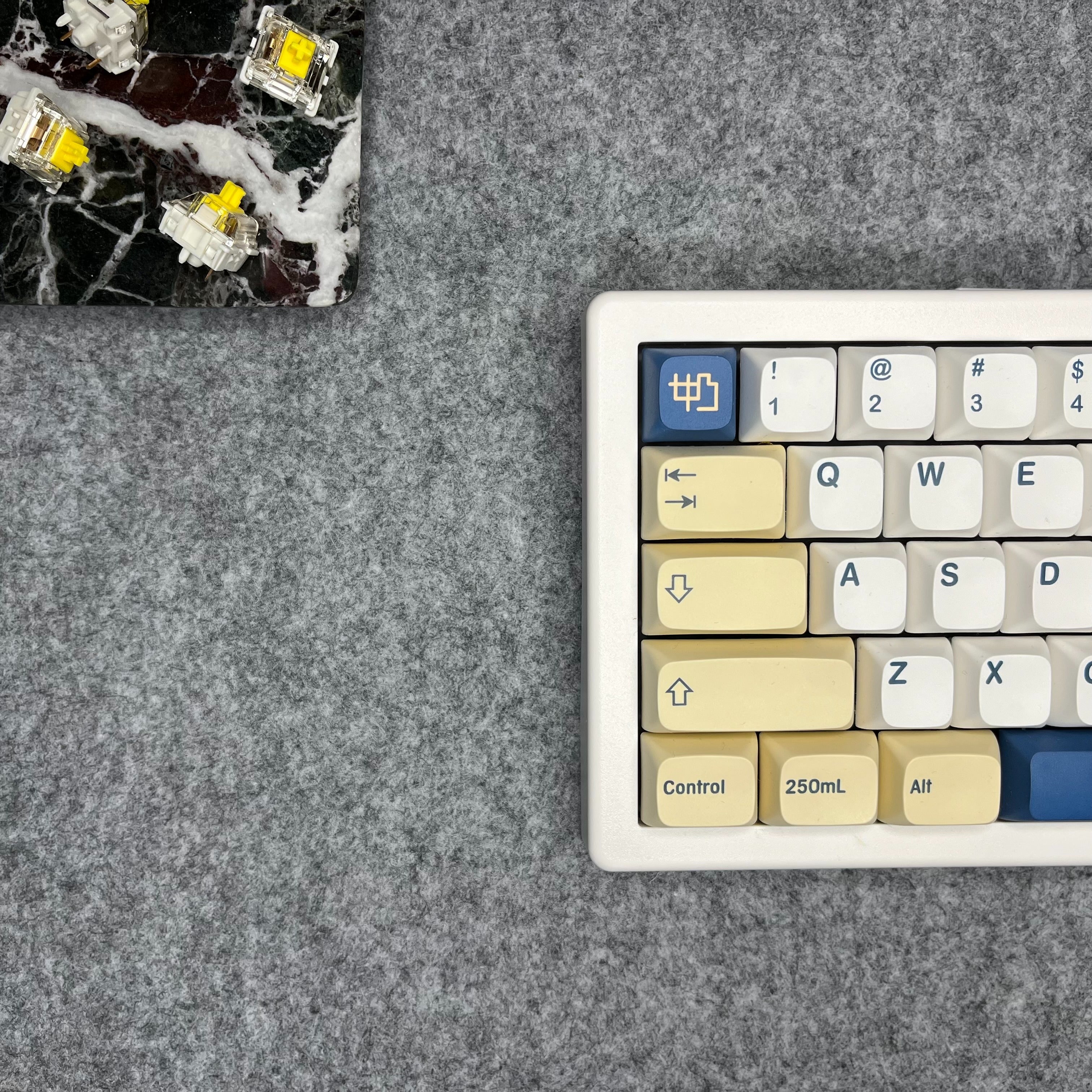
Customizable Mechanical Keyboards: Switches, Keycaps, and Their Effects on Keystroke Sound
Mechanical keyboards are no longer just a writing tool in today’s technological world, but rather a passion that combines personal tastes, performance, and experience. In particular, customizable mechanical keyboards offer users the opportunity to completely customize their typing experience, making a big difference compared to ordinary keyboards. So, what are the elements that make mechanical keyboards so special? Let’s take a deep look at switches, keypads, materials, and the effects of these components on keystroke sound.
Switches: The Heart of the Keyboard
The soul of a mechanical keyboard is undoubtedly the switches . These mechanical components located under each key determine the feel and sound of the keys when pressed. Switches are generally divided into three main categories:
-
Linear Switches : Offering a flat movement, these switches provide constant resistance when pressed and there is no sudden point felt at the end of the key. They are preferred by gamers due to their fast response times and smooth movements. The key sound is generally softer and less compared to other types.
-
Tactical Switches : In this type of switch, when you press a key, you feel a small resistance in the middle. This resistance gives you the feeling that each key is correctly detected while typing. There is usually a soft "click" sound, but this sound is quite faint.
-
Clicky Switches : As the name suggests, these switches make a very distinct "click" sound. This sound provides a satisfying feedback with each keystroke. They are popular with those who love to type and users who focus on the typing experience. However, they can be uncomfortable to use in an office environment or in a quiet area.
Each type of switch offers a different typing and gaming experience to the user, which is one of the cornerstones of keyboard customization. For example, linear switches may be more suitable for someone who wants to use it in a quiet environment, while clicky switches may be the ideal choice for someone who wants high feedback.
Keypads: The Importance of Style and Material
Another important part of customization for mechanical keyboards is the keycaps . Keycaps come in different colors, profiles, and materials that can completely change the look and feel of your keyboard. Popular keycap materials include:
-
ABS Plastic : ABS keys are a more cost-effective option, having a light and shiny appearance. However, they can shine over time and their surface can wear out. In terms of sound, they usually give a thinner and higher tone.
-
PBT Plastic : More durable PBT keycaps do not shine over time and the typing feel is more solid. These keys, which have a matte surface, produce a deeper and more solid sound than ABS. It is ideal for users who are looking for durability and a quality typing feel.
-
POM and Resin : Although they are among the less commonly used materials, POM and resin keycaps offer a unique touch and sound. While POM keycaps draw attention with their smooth surface and oily feel, resin keycaps have more stylish and special designs in terms of aesthetics. These materials provide a fuller and softer tone in terms of sound.
Key Profiles: The Determinant Factor of Ergonomics
Not only the material of the keycaps, but also their profile plays an important role in customizing your keyboard. Profile refers to the height and inclination of the keys, and this can directly affect the typing experience.
-
OEM Profile : This profile has a standard height and slope that can be used comfortably by many users. Most ready-made mechanical keyboards use this profile.
-
Cherry Profile : Shorter than OEM, the Cherry profile offers a more comfortable typing experience and is especially preferred by users who type for long periods of time.
-
SA Profile : The SA profile , which has higher and more curved keys, offers a retro look and leaves more space between the keys. However, due to its height, some users may feel uncomfortable when typing for long periods of time.
Effects on Key Sound: Material, Design and Personal Preferences
One of the most popular aspects of mechanical keyboards is their customizable keystroke sound . The sound a keyboard makes can vary depending on the type of switch, the material of the keycap, and the design of the key profile. However, beyond these factors, how the sound is felt also depends on personal preference.
-
Softer Sound : Keys made of PBT or resin material produce a more solid and softer sound. This can be especially ideal for office environments or those who prefer to work quietly.
-
Higher and More Distinct Sound : ABS keys or clicky switches produce a higher and more distinct sound. While this sound may be satisfactory for some users while typing, it may be annoying for others.
Conclusion: A Meeting Point of Personal Tastes
Customizable mechanical keyboards offer a platform that each user can customize to their own tastes and needs. Switch choices, keycap materials, profiles, and key sounds are the key elements that shape this experience. The sheer number of options can be confusing at first, especially for those new to the world of keyboards, but as you explore your own typing or gaming experience, you’ll see how much of a difference these customizations can make.
Remember, your keyboard is your voice—not just when you type, but when you define your place in the keyboard world!

